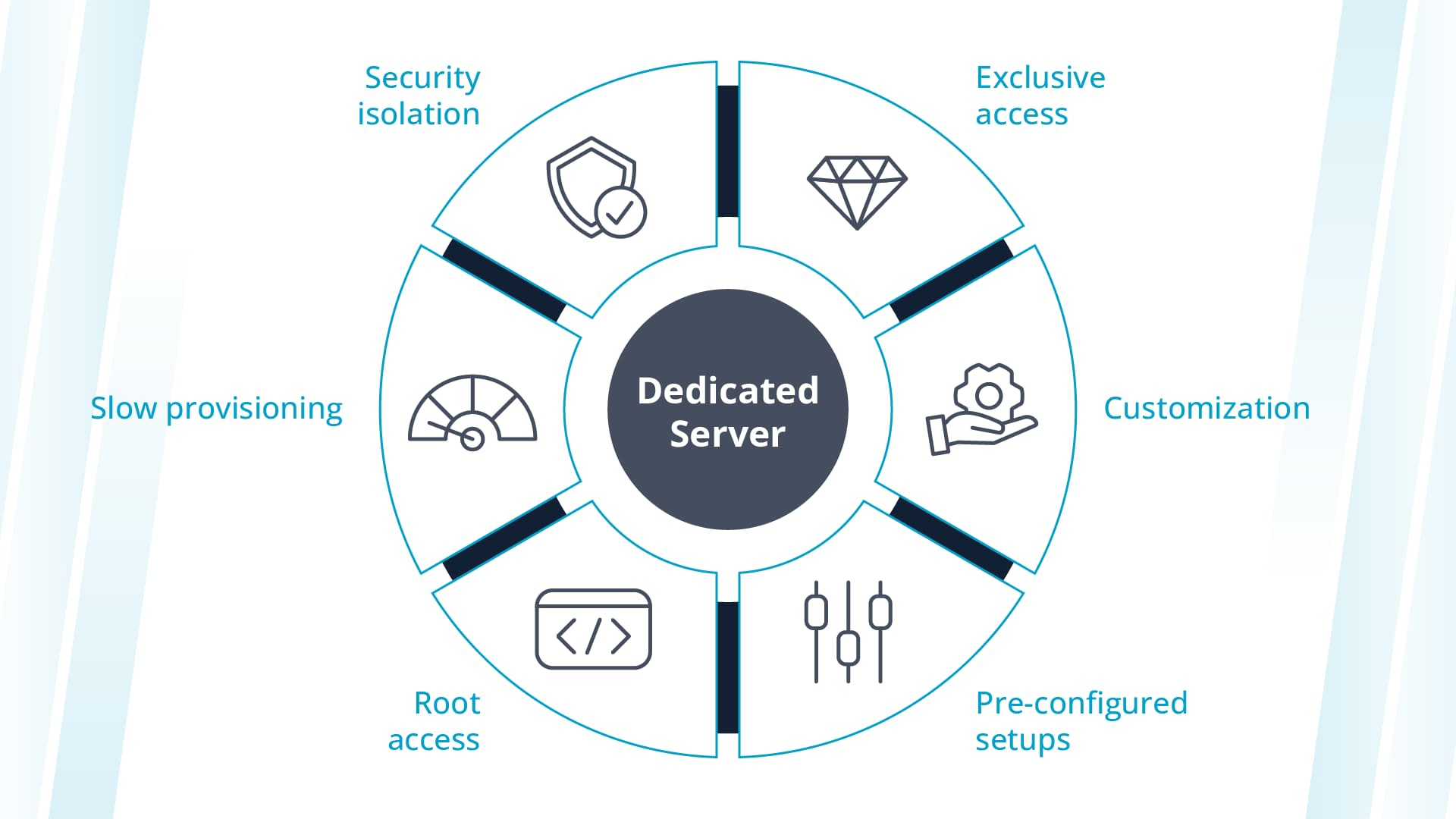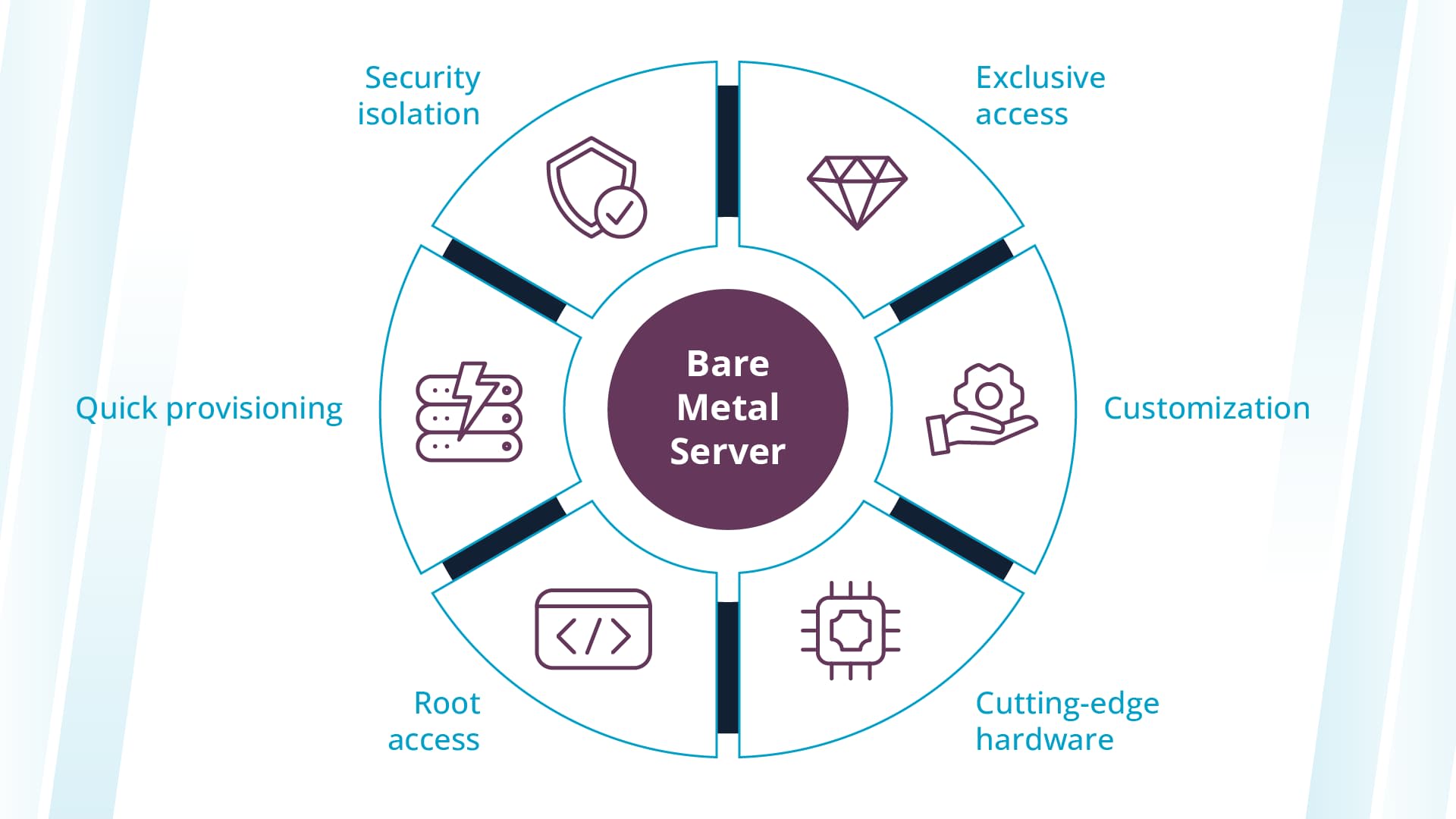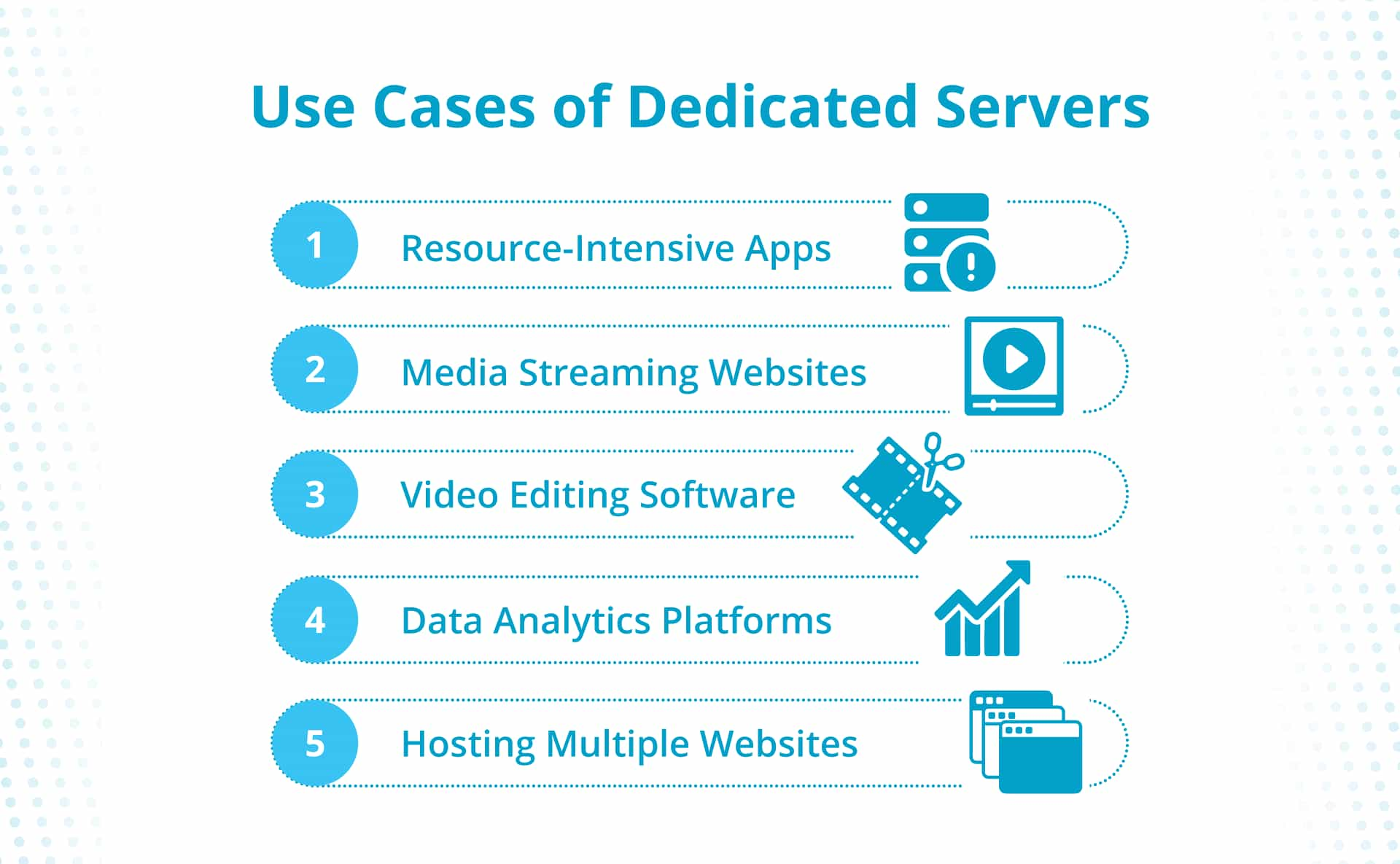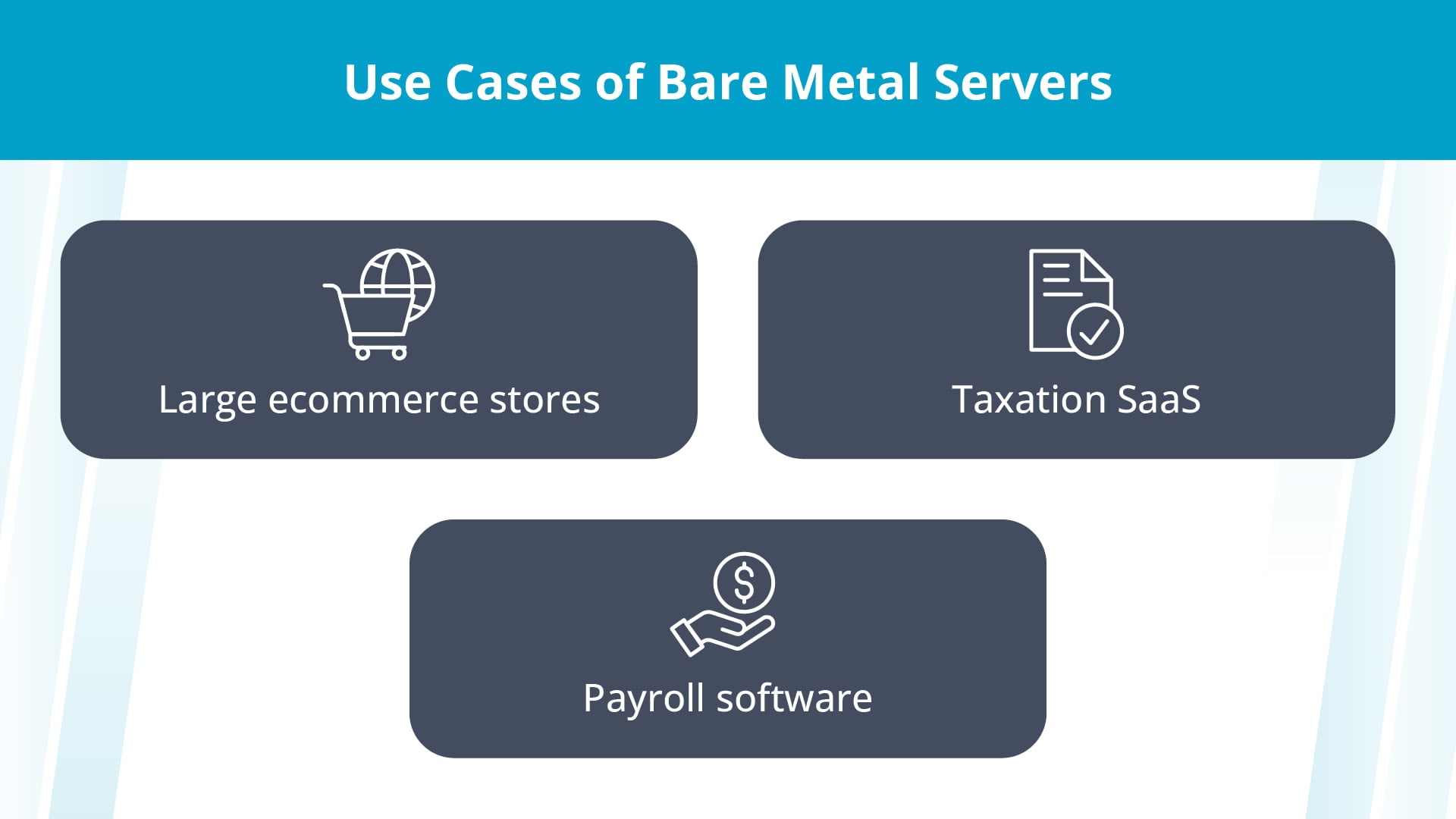Bare Metal vs Dedicated Server Hosting: Which Is Better?
If you’re looking to grow your business, expanding in the digital landscape appears to be a great solution for engaging a broader set of users, automating your services, and increasing business efficiency.
However, digitalization comes with security challenges because it exposes you to the world via multiple attack surfaces. In fact, a 2023 Verizon report found that external actors cause 83% of data breaches.
The solution to these digital security issues? Use a hosting product that minimizes the attack surfaces and offers robust security infrastructure. For example, instead of shared hosting with noisy neighbors, you can turn to single-tenant servers, which dedicate the entire infrastructure to you.
That said, which single-tenant hosting option is best for you: bare metal or dedicated server?
We’ll help you find the answer to that and more with this guide.
Dedicated Server 101

A dedicated server, or a dedicated physical server, is a type of hosting solution that dedicates an entire physical machine to a single tenant or user. In short, you have exclusive access to the physical server’s hardware, including RAM, CPU, storage, and bandwidth.
Since a dedicated server doesn’t share server resources with any other tenant, it provides the isolation you need to protect customer data and comply with relevant data security standards. Plus, you can customize it by installing your own operating system (OS) and software applications.
That said, most hosting providers offer limited customization when it comes to the physical infrastructure. If, for example, you require a dedicated server with a specific Intel processor, you may not get it.
Alternatively, you can opt for a dedicated hosting provider, like Liquid Web, that offers dedicated servers built to your exact requirements.
Bare Metal Server 101

A bare metal server is also a physical server that offers exclusive access to a single tenant and user without any virtualization, as it doesn’t come with any hypervisor installed. That said, a bare metal server is a modern take on traditional dedicated servers that comes with more flexibility and customization. This is why it’s also called a bare metal cloud.
You can rely on bare metal servers to provision extra resources when required without having to wait since you have access to instantly deployable resources from the hosting provider. Bare metal servers also come with the latest offerings in terms of hardware specifications. This includes the newest Intel processors, NVMe SSDs (nonvolatile memory express solid state drives), and DDR4 RAM.
Bare Metal vs Dedicated Server
Both bare metal cloud and dedicated servers are single-tenant, physical servers, so there aren’t many differences in configuration. Instead, their differences lie in how hosting providers package these two servers.
Provisioning Time
The hardware resources you need for your IT infrastructure vary all the time. For instance, you may have high resource demands during the day and lower needs at night. If you want to save on IT costs, you need your IT system to provision only the computing resources it requires.
That said, you can only opt for such quick provisioning with bare metal servers since hosting providers offer them with instantly deployable resources. In contrast, dedicated servers often require a lead time to change their configuration. As such, they can’t be used to provision resources on the fly.
Customization
Bare metal server plans usually offer a high degree of customization for CPU, RAM, storage, and network requirements. You can specify the exact set of specs you want, and the hosting provider will provide a custom plan for you.
Dedicated servers also offer customizability, but it’s a bit more limited than what you get with bare metal servers. In most cases, you have a few preconfigured setups you can turn to. And if you want a custom solution, you’ll need your host to source the parts and set up a custom server.
On the other hand, bare metal server plans often let you choose different Intel processors and GPUs by themselves.
Security
Security is a major consideration for any server deployment. With both bare metal and dedicated servers, you benefit from physical isolation and from having a single-tenant environment. Bare metal servers are exactly as secure as you configure them to be. Dedicated servers with managed services will automatically apply any required operating system security updates and patches. When considering the security of bare metal vs dedicated servers, it comes down to a choice between control and convenience.
Pricing Model
Bare metal and dedicated servers often use different pricing models. Dedicated servers are almost always offered as a subscription service with monthly or annual plans. In contrast, bare metal plans might come with a subscription plan or a pay-as-you-go model.
To put it another way, dedicated server hosting is typically a long-term investment since you decide on a configuration and start paying a set amount per month or year. In contrast, bare metal servers allow you to temporarily scale up your computing services when required without any long-term contract.
Hardware Infrastructure
While the server configurations of bare metal and dedicated servers are relatively similar, they use very different hardware.
As an affordable single-tenant solution, dedicated servers use inexpensive-to-standard hardware. For instance, they may opt for SATA SSDs or HDDs and older Intel Xeon processors.
Bare metal servers, on the other hand, are usually premium offerings of a hosting provider and come with a range of high-end hardware choices, including NVMe SSDs, the latest Xeon Gold processors, and high-speed bandwidth connections.
Scalability
Both server configurations offer scalability in their own way. With bare metal servers, you can vertically scale the server on demand by provisioning instantly deployable resources from the hosting provider. However, with a dedicated server, you’ll need to wait until the provider procures, configures, and sets up the upgraded dedicated server.
In short, bare metal servers offer automated scalability, while dedicated servers require human input.
Why Use Dedicated Servers?
Dedicated server hosting is an excellent solution if your business has a high, yet predictable, demand for computing resources. Plus, you can consider it as an isolated physical server, so it’s great for security isolation.
In addition, dedicated server hosting comes with root access, so you can manage the server according to your organizational requirements without having to go back and forth with customer support.
Use Cases of Dedicated Servers

Here are a few applications of dedicated servers:
- Resource-intensive apps— If you need a server for scientific computing, rendering graphics, or running online games, you’ll need a dedicated server to sustain the high resource requirements.
- Media streaming websites — To offer a Netflix-like experience, you need powerful dedicated servers that can encode, transmit, and deliver media without interruptions.
- Video editing software — Web-based video editing platforms require high processing power and support for low-latency access to tools to ensure a smooth editing experience and facilitate collaboration.
- Data analytics platforms — Data analytics platforms require high processor capabilities and custom hardware configurations suited for their analytic workloads.
- Hosting multiple websites — A dedicated server simplifies web hosting for multiple websites since you have full root access to install custom software and manage all the websites from a single dashboard.
Why Use Bare Metal Servers?
Like dedicated servers, bare metal servers also offer high performance and robust security. Their primary advantage over dedicated servers is scalability and flexibility since you can add or remove resources as required.
Typically, bare metal servers find great use as supplementary hosting for dedicated servers. You depend on dedicated servers for average demand and add bare metal servers to your configuration when required to meet increases in resource requirements.
Use Cases of Bare Metal Servers

Bare metal servers are best for applications with flexible demand but high security requirements:
- Large eCommerce stores —eCommerce stores often have unpredictable, high traffic during sales and holiday seasons and require more computing resources to serve their shoppers without a dip in customer experience.
- Taxation SaaS — If you manage a taxation SaaS, you’ll have a higher user load in the days and months preceding the tax deadline.
- Payroll software — Resource demand for payroll software solutions is often unpredictable due to variable payroll cycles, seasonal workforces, and regulatory changes.
Final Thoughts: Bare Metal vs Dedicated Server Hosting
Both bare metal and dedicated servers are great hosting solutions for any business that needs to comply with relevant security standards.
That said, the infrastructure is only as good as the hosting provider that offers it. If you’re looking for a reputable provider that prioritizes your business, consider Liquid Web.
Our bare metal cloud hosting plans provide consistent and predictable performance at a fraction of what you’d pay VPS-only providers. We also offer dedicated server hosting plans with complete server customization and enhanced security.
Check out our bare metal cloud and dedicated server hosting plans to get started today.
Related Resources

David Richards
David Richards has been an educator, a Technology Director, and now a Technical Writer for 20+ years. He’s an English major with a love for technology and helping others find ways to use technology more effectively. In his free time, Dave loves to read, play games, and spend time with his family.
Keep up to date with the latest Hosting news.




